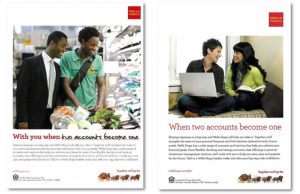Allyship and Intersectionality – these two topics are now indeed hot within the diversity, equity and inclusion world, and both these topics do truly come together.
Many more companies and organizations, for profit, non-profit and governmental are now focusing on the importance of allyship in building a cohesive work environment and better serving customers, clients, citizens and residents.
My favorite definition of allyship and being an ally was written by Katherine Turner of Global Citizen LLC, a leading diversity consultant and practitioner I enjoy collaborating with. Katherine defines an ally as “a person with relative privilege and power who builds trusting relationships and acts in solidarity and with accountability with people and/or groups with marginalized identities without detracting from their power and voices.”
A second diversity construct that is getting a lot more focus now is intersectionality, coined in 1989 by professor Kimberlé Williams Crenshaw to describe how race, class, gender, and other individual characteristics “intersect” with one another and overlap. We cannot look at someone as only one dimension of their diversity, but that every person is their own unique combination of many different aspects of their diversity.

Each person is their own unique mix of diversity attributes (graphic courtesy of Syracuse University Libraries)
Some aspects of our complex diversity make up give us relative power and privilege in various settings, and some aspects give us relative marginalization. For example, being white and male provides me relative privilege, being gay relative marginalization, and being older can be either an advantage or disadvantage given different environments.
Because of intersectionality, every one of us can both be allies to some people, while others can be allies to us. Every one of us can simultaneous be an ally and use an ally.
• White men and white women can be allies to people of color
• Men can be allies to women
• Heterosexuals can be allies to members of the LGBTQ+ community
• Able-bodied people can be allies to people with disabilities
And so on.
And being an ally means taking action – standing with others, listening to them, supporting them and pushing for equitable treatment and respect for all. And being an ally is a two-way street – both the ally and the person being allied with gain insight and value from allyship. Do read my earlier blog “Allyship is a Two Way Street – 5 Points.”
And look at all the various aspects of your own diversity, and consider how you can be an active ally to others. You and the world will be better because of it.
* * * * * *
Total Engagement Consulting includes allyship and intersectionality in most of our diversity, inclusion and equity training, and we can also provide a deeper training on allyship for your organization. Please do not hesitate to contact me [email protected]



